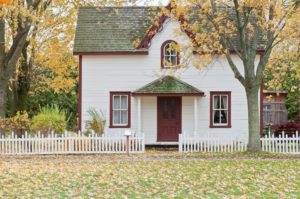What is considered a homestead in Texas can have a very big effect on your estate planning needs as well as many other aspects of your life. The Texas Constitution lets a person establish a homestead which is basically a certain piece of real estate that is exempted from being taken away by most (not all) creditors. Historically the idea was to give people who are in debt and own a home a way to preserve and support their family and therefore not become a burden to the public. I think this was especially true back in the 1800’s when the vast majority of people in Texas still lived and worked on farms and ranches.

Photo by Scott Webb on Unsplash
The Texas Property Code provides for two types of homesteads – rural homesteads and urban homesteads. A rural homestead in Texas is limited to 200 acres for a family (100 acres for a single person) that are not in a city or town. In order to claim a rural homestead the person has to live on the property and use the rest of the property to help support his family.
An urban homestead in Texas lets a family or single adult claim one or more contiguous lots in a city or town that is 10 acres or less. The property must either be their home or both their home and a business that is run by the property owner.
A person can only claim one homestead, so they should choose wisely, especially if they are concerned about creditors. There is not limit on the value of the property, whether it’s rural or urban, so this can be a great way to shield assets.
Having said that, there are some creditor claims that are enforceable against a homestead. These include a mortgage on the property, home improvement loans, tax liens (local, state, and federal), home equity loans, reverse mortgages, previously recorded liens, and liens secured by manufactured homes.
A homestead can likewise play a big role when it comes to estate planning that goes beyond asset protection from creditors. If you are married and you give your house to someone other than your spouse, even if it’s separate property that you purchased before you got married, your surviving spouse has the legal right to occupy or use the homestead for the rest of their life. This typically becomes a problem when blended families are involved. The deceased person may have willed the house to their children from a prior marriage, but due to homestead laws those children cannot force the surviving spouse to vacate the property. If there are difficult financial issues going on for the surviving spouse and/or the children, things can get very ugly very fast.


